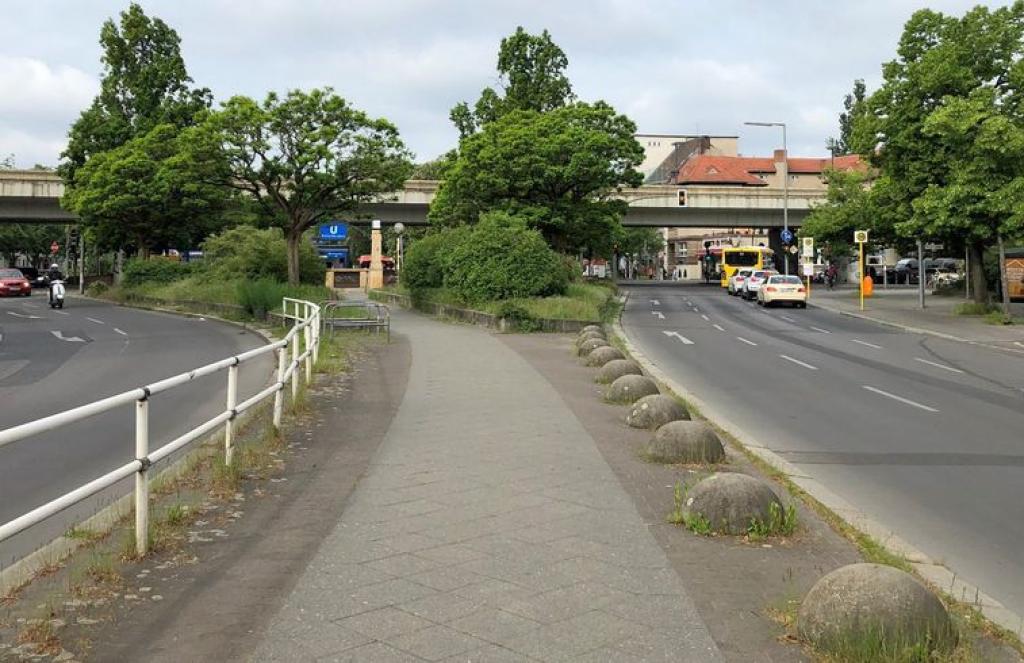Thessaloniki gets ready for its metro launch in November
The underground rapid transit lines have been under construction for almost two decades due to various project delays
 TheMayor.EU logo
TheMayor.EU logo 
The motorway is the only German autobahn, going directly into a 30 kilometre low speed zone. , Source: City of Berlin
Breitenbachplatz feature a 500-metre-long, raised, four-lane double overpass – quite excessive for a quiet suburb
On 29 December, Berlin authorities announced the results of a feasibility study on removing car infrastructure in the city’s Breitenbachplatz. According to the results, the square would benefit enormously in terms of quality of life and maintenance costs if the city decides to dismantle the raised concrete car bridge flanking the green area.
Moreover, officials have called the overpass a ‘relic of a bygone car-friendly era’ and the source of a quality of life drop in the area. Also, numerous citizen-led organisations have been campaigning for the demolition of the 500-metre-long four-lane double bridge for years, a mishap of ‘70s car-centric city planning in West Berlin.
The feasibility study for dismantling the bridge on Breitenbachplatz was first commissioned in June 2019 and carried out by the Berlin Senate Department for the Environment, Mobility, Consumer and Climate Protection (SenUMVK).
The study examined 10 variants and the traffic, urban planning, ecological and financial ramifications of the move, as well as a redesign of the square. The main result: dismantling the former motorway bridges, now a connection to the city motorway, is technically feasible and manageable in terms of traffic.
Variants 1 and 3 proved to be most beneficial. Variant 1 proposes traffic is routed at ground level via the square and then continues through the tunnel under the Schlangenbader Straße (ÜBS) superstructure. Variant 3, on the other hand, calls for the tunnel connection to also be closed to offer more opportunities to change traffic in the area and move away from cars.
Also, in both variants, the bridge structures over the Breitenbachplatz are no longer required and can be dismantled. Moreover, doing nothing would also be a bad option, as maintaining the bridge’s roadworthiness would mean high repair costs for the local administration and discourage a less traffic-focused redesign of the square.
Mobility Senator Bettina Jarasch was quoted in a press statement explaining that Berlin is inclined to gradually dismantle the car-friendly city and move towards a people-friendly city. The bridges, which were constructed in the 1970s as an urban freeway are, as she continued, a very stark example of that past.
Additionally, the study showed that losing the bridge would not in any way ‘break’ local traffic. On the contrary, it would allow for redesigning of the square with more space for greenery, children and outside living.

The underground rapid transit lines have been under construction for almost two decades due to various project delays

Now you can get your wine in Talence by paying directly in Bitcoin

That’s because the state has to spend money on updating the railway infrastructure rather than subsidizing the cost of the popular pass

Rethinking renewable energy sources for the urban landscape

The examples, compiled by Beyond Fossil Fuels, can inform and inspire communities and entrepreneurs that still feel trepidation at the prospect of energy transition

Now you can get your wine in Talence by paying directly in Bitcoin

The 10th European Conference on Sustainable Cities and Towns (ESCT) sets the stage for stronger cooperation between the EU, national and local level to fast track Europe's transition to climate neutrality.

At least, that’s the promise made by the mayor of Paris, Anne Hidalgo

The underground rapid transit lines have been under construction for almost two decades due to various project delays

At least, that’s the promise made by the mayor of Paris, Anne Hidalgo

Hostal de Pinós is located in the geographical centre of the autonomous region

Despite its church-y name, the district has long been known as the hangout spot for the artsy crowds

Urban dwellers across the EU are having a say in making their surroundings friendlier to people and the environment.

Forests in the EU can help green the European construction industry and bolster a continent-wide push for architectural improvements.

Apply by 10 November and do your part for the transformation of European public spaces

An interview with the Mayor of a Polish city that seeks to reinvent itself

An interview with the newly elected ICLEI President and Mayor of Malmö

A conversation with the Mayor of Lisbon about the spirit and dimensions of innovation present in the Portuguese capital














